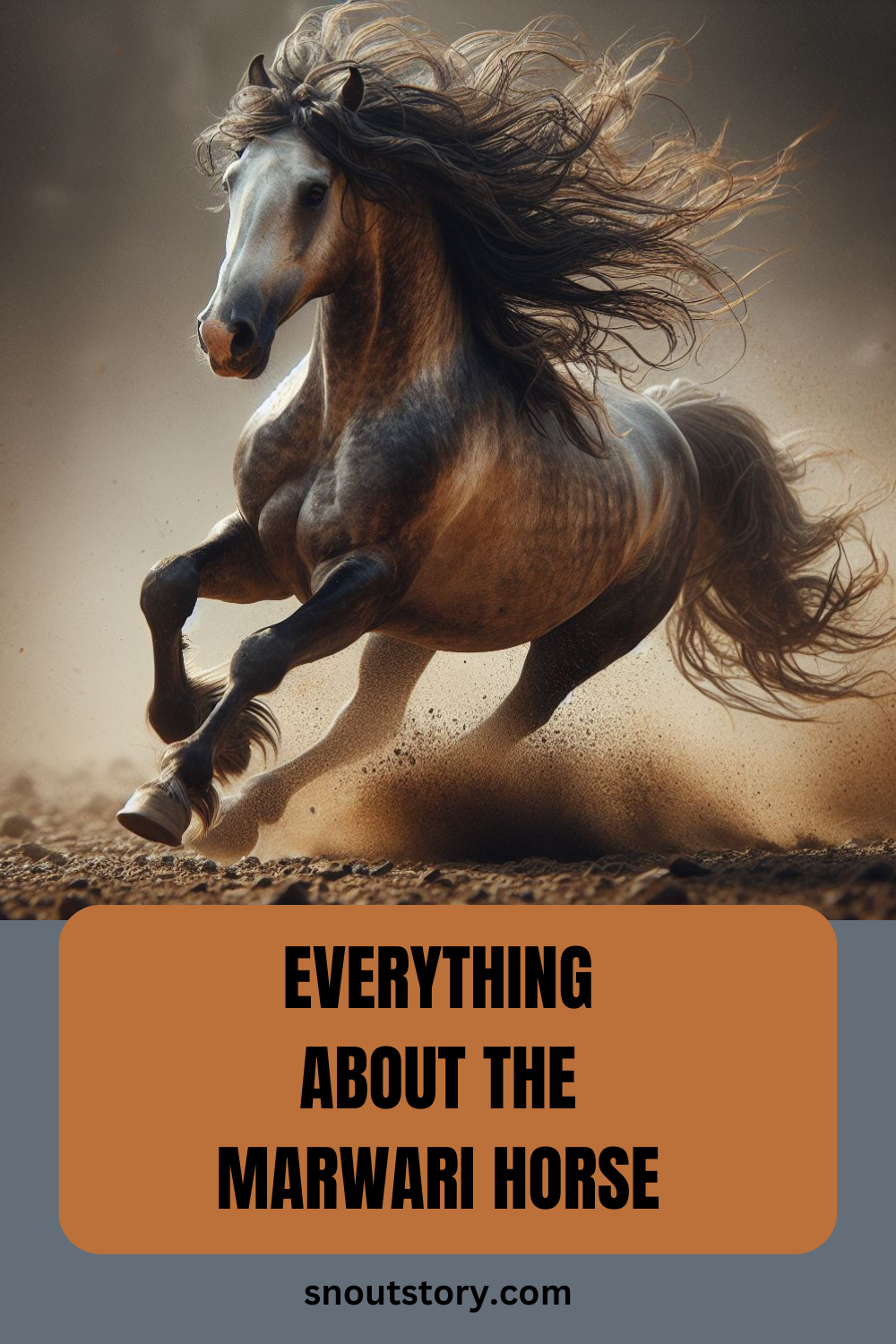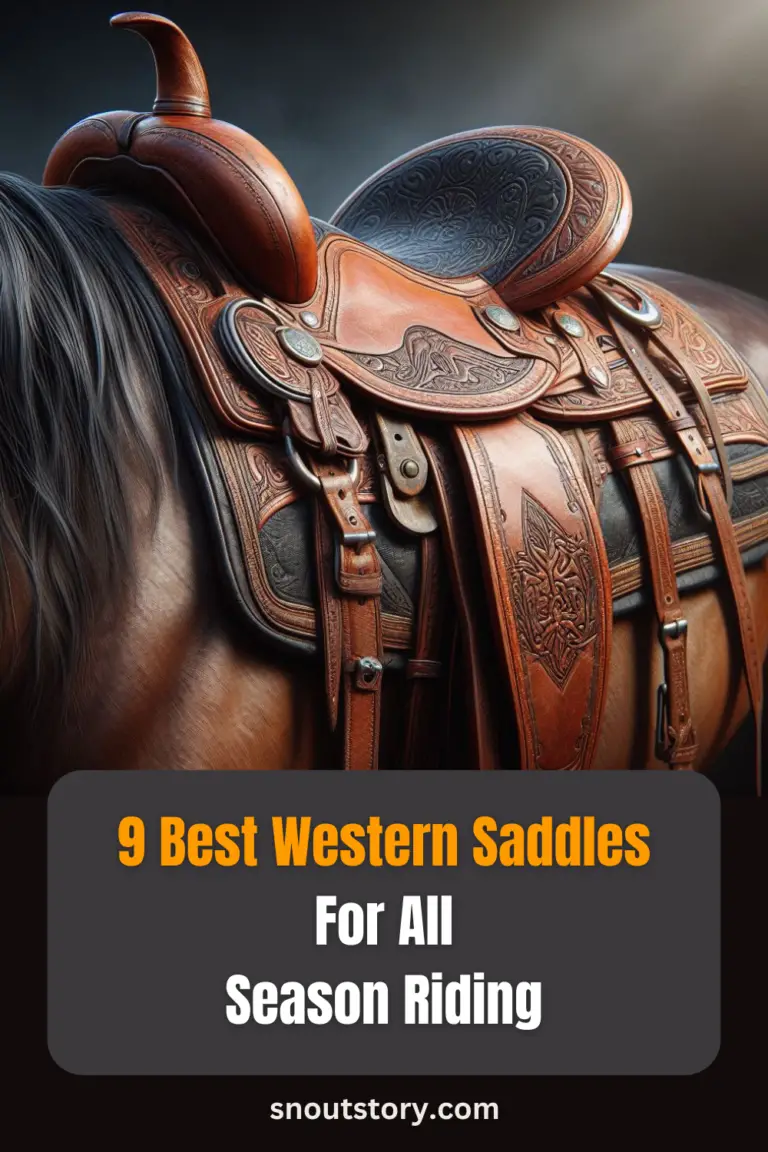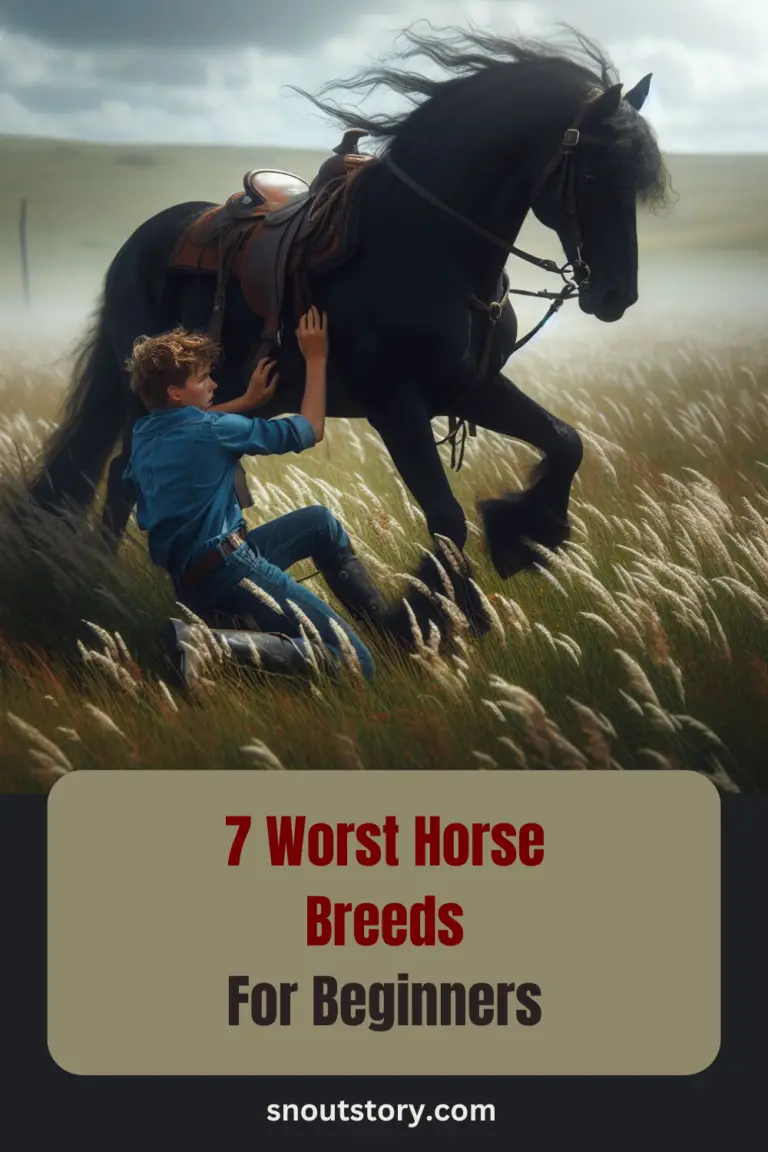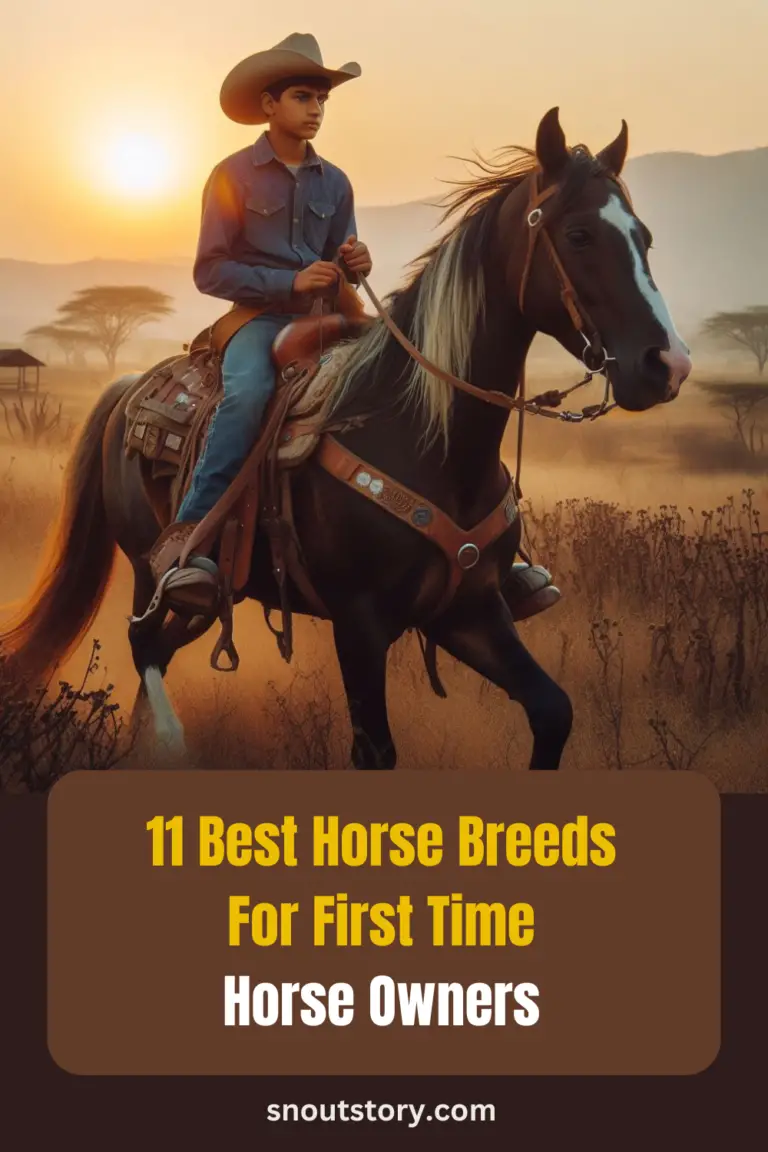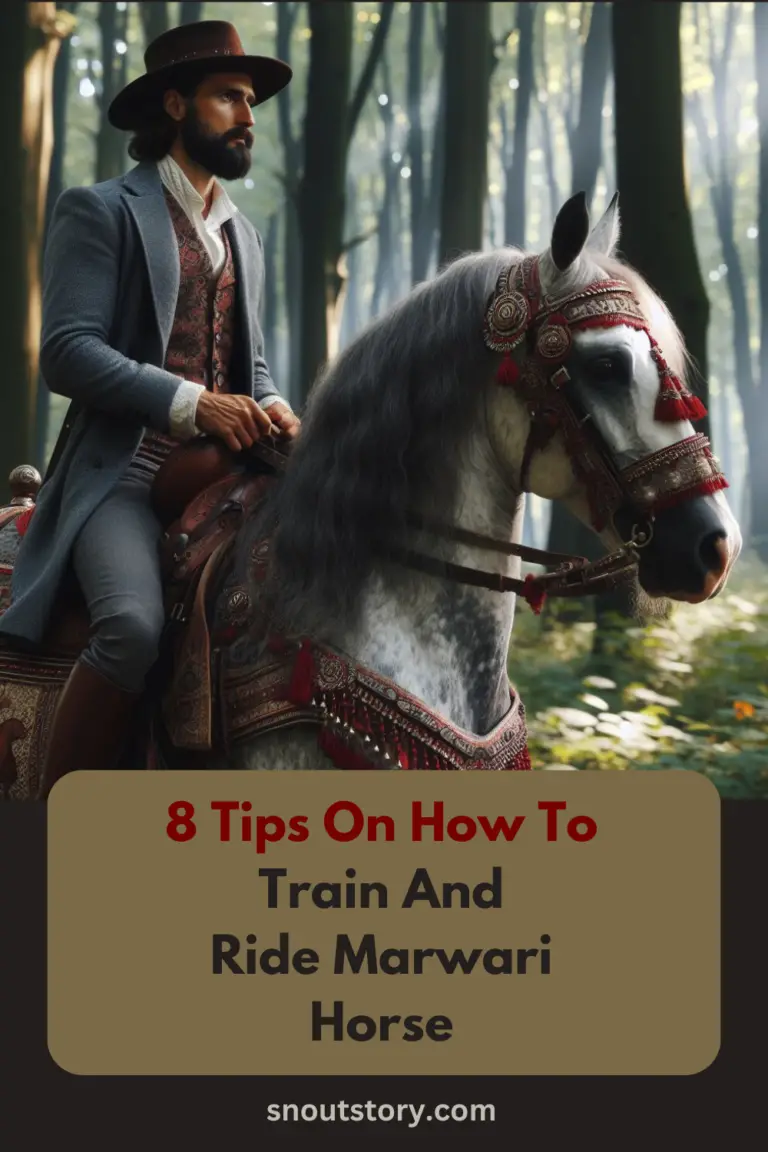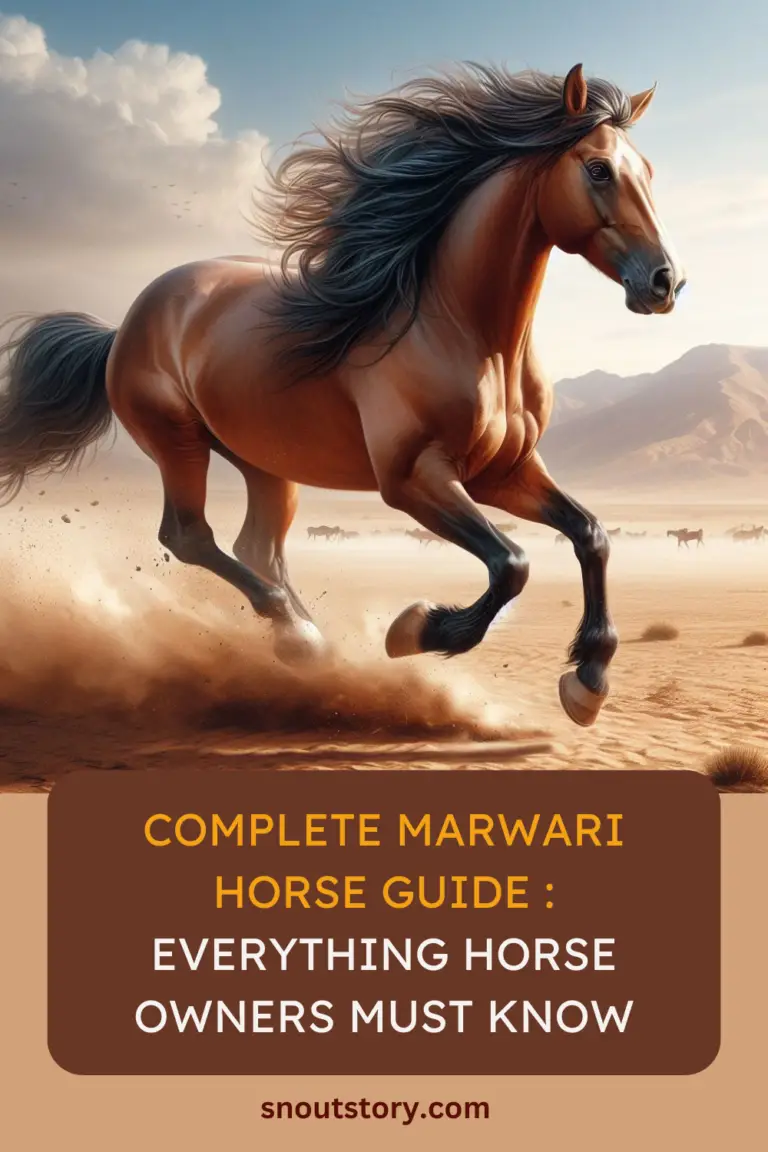The origins and history of the Marwari Horse trace back to the ancient desert kingdom of Marwar, located in present-day Rajasthan, India. Renowned for their striking appearance and exceptional endurance, Marwari Horses were bred by the Rajput warriors for use in battle and as symbols of prestige and status. With a lineage steeped in tradition and legend, these magnificent horses played a vital role in the rich cultural heritage of Rajasthan, often depicted in art, folklore, and royal ceremonies. Over the centuries, Marwari Horses have adapted to the harsh desert environment, developing unique physical traits and characteristics that distinguish them from other horse breeds. Despite facing challenges and periods of decline, the Marwari Horse has persevered through the dedication and passion of breed enthusiasts, ensuring its legacy continues to thrive in the modern era.
Unique Characteristics of the Marwari Horse Breed
- Distinctive Ears: One of the most striking features of the Marwari breed is their unique inwardly curved ears, known as “lyre ears” or “peacock ears,” which can rotate up to 180 degrees.
- Arched Neck: Marwari Horses are characterized by a gracefully arched neck, adding to their regal and majestic appearance.
- High Knee Action: They possess high knee action, giving them an elegant and flashy movement, particularly prized in the show ring.
- Loyalty and Bravery: Marwari Horses are renowned for their loyalty, bravery, and intelligence, traits that were historically valued by their Rajput breeders for use in battle.
- Hardiness and Adaptability: Adapted to the arid climate of Rajasthan, Marwari Horses exhibit exceptional hardiness and endurance, making them well-suited for long-distance travel and endurance riding.
Traditional Uses and Roles of Marwari Horses
The traditional uses and roles of Marwari Horses are deeply intertwined with the rich cultural heritage of Rajasthan, India. Historically bred by the Rajput warriors, Marwari Horses were esteemed for their bravery, agility, and endurance on the battlefield. Their loyalty and fearlessness made them invaluable companions for Rajput nobility, who relied on them for both military endeavors and ceremonial events. Beyond their martial prowess, Marwari Horses were also prized for their utility in everyday life, serving as reliable mounts for transportation, agriculture, and herding in the rugged terrain of Marwar.
Their versatility and adaptability made them indispensable to the livelihoods of the people of Rajasthan, earning them a revered status in local folklore and legend. Today, while their traditional roles have evolved with modernization, Marwari Horses continue to embody the spirit and resilience of their ancestors, celebrated for their beauty, grace, and cultural significance.
Cultural Significance and Symbolism Associated with Marwari Horses
The cultural significance and symbolism associated with Marwari Horses run deep in the fabric of Rajasthani heritage and tradition. Revered as symbols of strength, nobility, and prestige, Marwari Horses have long been intertwined with the identity and pride of the Rajput clans of Rajasthan. In local folklore and mythology, these majestic horses are often depicted as divine beings, embodying qualities of valor, loyalty, and grace.
Their graceful presence in royal processions, ceremonies, and festivities lends an aura of grandeur and splendor, symbolizing power and prosperity. Additionally, Marwari Horses hold a special place in the hearts of the Rajasthani people, serving as cultural icons and sources of inspiration for art, music, and literature. Their distinctive appearance, spirited demeanor, and storied history continue to captivate imaginations and evoke a sense of pride and reverence for the rich heritage of Marwar.
Modern-Day Challenges and Preservation Efforts for the Marwari Breed
In today’s world, the Marwari breed encounters contemporary challenges that jeopardize its survival and heritage. Rapid urbanization, shifts in agricultural practices, and waning interest in traditional equine pursuits pose significant threats to the Marwari Horse’s population and cultural significance. Furthermore, the breed faces genetic dilution from crossbreeding efforts, raising concerns about preserving its purity and distinct characteristics.
Despite these obstacles, passionate advocates and preservationists are actively engaged in safeguarding the Marwari breed’s future. Through education initiatives, breeding programs, and advocacy campaigns, they strive to raise awareness about the breed’s historical importance and promote its conservation. By fostering collaboration among stakeholders and implementing sustainable practices, these preservation efforts aim to ensure that the Marwari breed continues to thrive and enrich the world with its legacy for generations to come.
Marwari Horse Colors and Markings
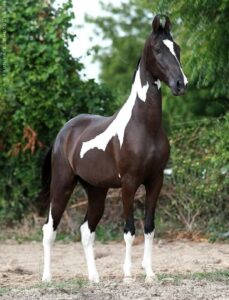
- Marwari Horses come in a variety of coat colors, including black, bay, chestnut, dun, gray, and palomino.
- Their coats may feature intricate markings such as blaze, star, snip, or socks, adding to their individuality and charm.
- These colors and markings not only enhance the aesthetic beauty of Marwari Horses but also serve as markers of their lineage and heritage.
- Each horse’s coat tells a story, showcasing its unique ancestry and genetic traits passed down through generations.
- Marwari Horses captivate admirers with their stunning and diverse array of colors and markings, embodying the beauty and mystique of this revered breed.
Famous Marwari Horses in History and Legend
Throughout history and legend, several Marwari Horses have left an indelible mark on the collective consciousness, their stories woven into the fabric of Rajasthani lore and beyond. Among them is Chetak, the legendary war horse of Maharana Pratap, whose unwavering loyalty and bravery in battle are celebrated in countless ballads and folk tales. Another notable figure is Badal, the beloved mount of Raja Man Singh, whose courage and resilience in the face of adversity have inspired generations. These iconic Marwari Horses symbolize the enduring spirit of their breed, embodying traits of valor, loyalty, and nobility that continue to captivate imaginations and evoke a sense of reverence.
Their legendary deeds and noble lineage serve as a testament to the remarkable bond between humans and horses, transcending time and leaving an indelible legacy for future generations to admire and cherish.
Training and Handling Techniques for Marwari Horses
When it comes to training and handling Marwari Horses, a patient and empathetic approach yields the best results. These intelligent and sensitive animals respond well to positive reinforcement techniques, where rewards and praise are used to encourage desired behaviors. Clear communication and consistency are key in establishing trust and building a strong bond between the horse and handler.
It’s important to understand the individual temperament and preferences of each horse, adapting training methods accordingly to suit their needs. By creating a calm and supportive environment, handlers can nurture the natural abilities and talents of Marwari Horses, helping them reach their full potential while fostering a respectful and harmonious relationship.
Health Considerations and Common Issues in Marwari Horses
When addressing the health considerations and common issues in Marwari Horses, it’s essential to prioritize preventive care and regular veterinary check-ups. Like any breed, Marwari Horses are susceptible to various health issues, including dental problems, hoof issues, and skin conditions. Maintaining proper dental hygiene, regular hoof care, and a balanced diet are crucial for their overall well-being. Additionally, vigilance for signs of colic, lameness, and respiratory issues is important to catch and address any potential problems early on. Providing a clean and safe living environment, along with appropriate exercise and nutrition, can help minimize the risk of health issues and ensure that Marwari Horses lead happy and healthy lives.
Marwari Horse Breed Standards and Registration Organizations
For Marwari Horse breed standards and registration organizations, adherence to established guidelines is paramount to preserving and promoting the breed’s unique characteristics and heritage. Various breed associations and registration bodies, both in India and internationally, set forth criteria for evaluating Marwari Horses based on factors such as conformation, temperament, and lineage. By adhering to these standards, breeders and owners contribute to the integrity and recognition of the Marwari breed, facilitating accurate pedigree documentation and promoting responsible breeding practices.
Additionally, participation in breed shows and events organized by these organizations offers opportunities for showcasing Marwari Horses’ beauty and abilities while fostering camaraderie among enthusiasts and stakeholders. Through collaboration and adherence to breed standards, these registration organizations play a vital role in safeguarding the Marwari breed’s legacy and ensuring its continued recognition and appreciation worldwide.
Recommended
9 Best Horse Western Saddles For All Season Riding (Review and Buyers Guide)
7 Worst Horse Breeds for Beginners (Toughest To Train)
11 Best Horse Breeds for Beginners (Easiest To Train)
8 Tips On How To Train And Ride Marwari Horse
Marwari Horse Care Tips (Every New Owner Must Know)
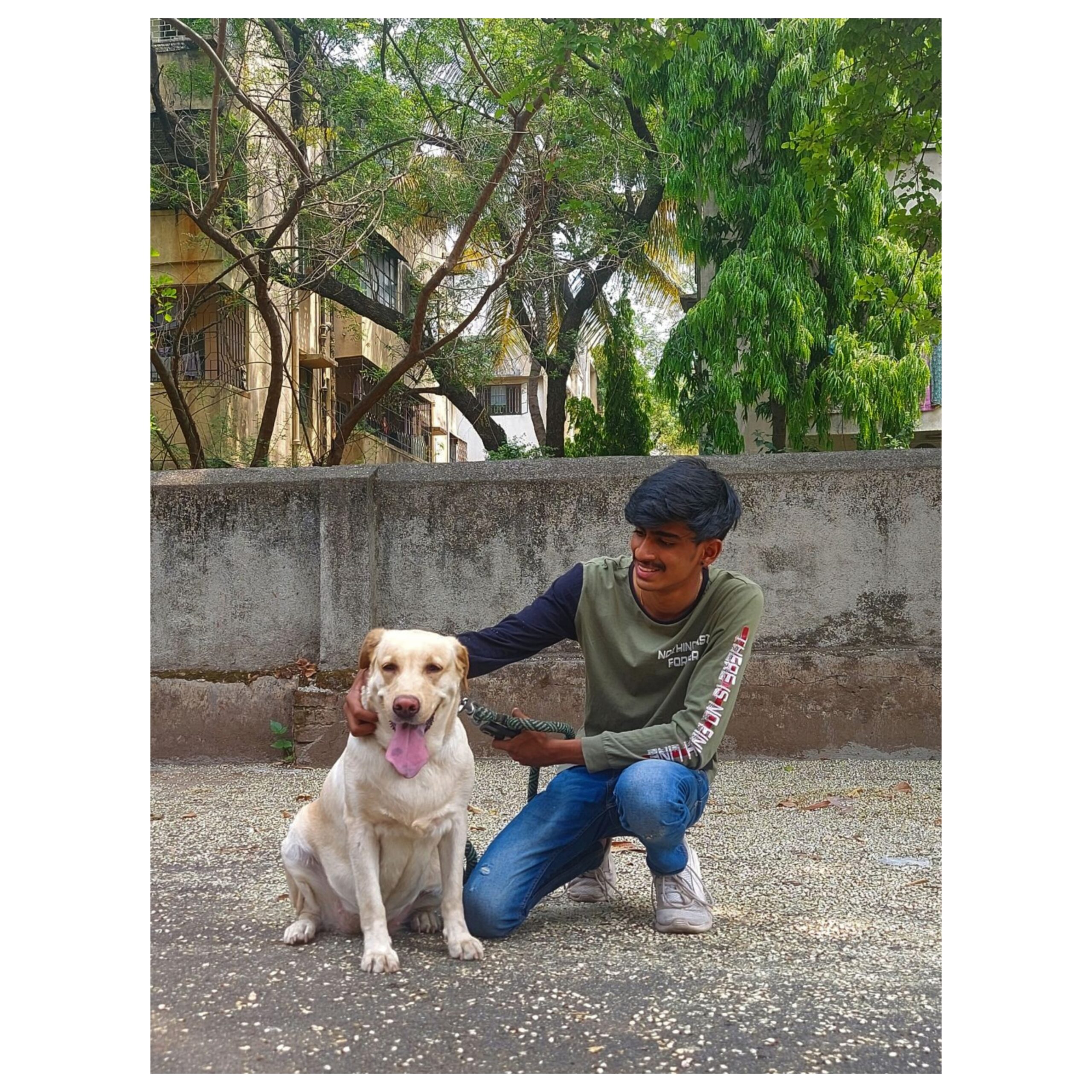
Vedant Narvekar is an experienced digital marketing expert with a profound love for nature and animals. With a career rooted in leveraging online platforms to drive engagement and promote meaningful causes, Vedant’s passion for animals inspired him to start Snout Story—a blog dedicated to educating people about pet keeping and sharing proper knowledge about caring for animals. Drawing on his expertise in digital marketing, Vedant utilizes his platform to advocate for responsible pet ownership, providing valuable insights on pet care, training, nutrition, and more. Through Snout Story, Vedant aims to empower pet lovers with the information they need to provide the best possible care for their furry companions, while also fostering a deeper appreciation for the natural world and the creatures that inhabit it.

